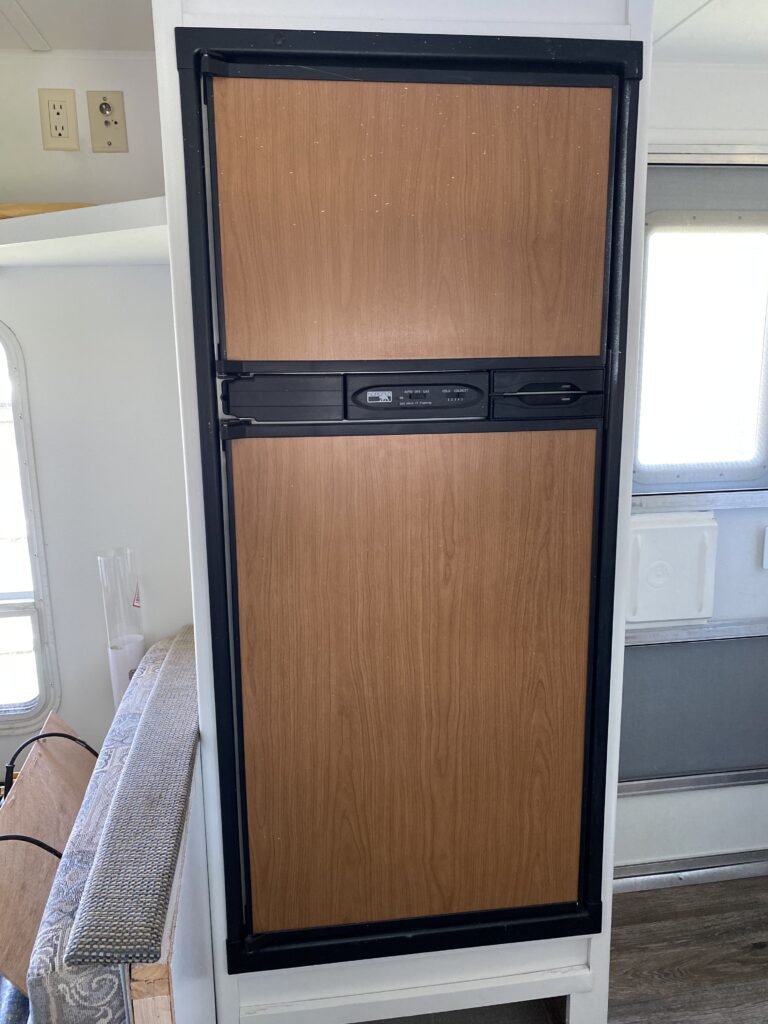When embarking on adventures in a recreational vehicle (RV), comfort becomes paramount. Among the myriad components that contribute to this comfort, the refrigerator stands out as a crucial element. The camper refrigerator, whether powered by gas or electricity, serves not just as a mere appliance, but as a vessel for sustenance, preserving food and beverages that fuel our journeys. Understanding how these refrigeration methods operate can significantly enhance your RVing experience, transforming your mobile home into a haven of culinary delight.
At the heart of any RV refrigerator is a simple yet ingenious principle: the preservation of perishable goods. RV refrigerators typically utilize two primary sources of power — propane gas and electricity. Each has its own set of advantages and disadvantages, which can greatly affect your decision on which type to use based on your specific travel conditions and preferences.
Let’s dive deeper into gas-powered refrigerators first. These units operate using propane, a fuel that is both efficient and widely available. The allure of propane lies in its ability to function even when the RV is not connected to an electrical source, making it an indispensable option for boondocking or camping in remote locations. Gas refrigerators generally employ an ammonia absorption cooling cycle that requires minimal energy yet yields effective cooling. They often have the capacity to maintain low temperatures, which is essential for preserving food quality during extended trips.
However, as with anything, there are nuances. Gas refrigerators can be less efficient in extreme heat; performance may wane as outdoor temperatures soar, causing a need for careful monitoring. Additionally, since they rely on combustion, safety precautions are paramount. Proper ventilation and regular maintenance are essential to prevent any risks associated with gas leaks or appliance failure. But for those captivated by the thrill of the wilderness, the advantages often far outweigh the drawbacks.
On the other hand, electric refrigerators provide a different kind of convenience. Most modern RVs are equipped with either 110-volt AC power or a 12-volt DC power source, enabling the refrigerator to operate seamlessly while on the road or plugged into a campground electrical supply. These refrigerators often boast more sophisticated temperature regulation systems and can cool down rapidly, allowing ice cream runs or last-minute grocery stops without causing a food safety crisis.
Though electric units seem straightforward, they trap users in a different kind of quandary: reliance on a continual power supply. When camping at non-electrical sites, the need for battery management becomes crucial, as running the refrigerator without sufficient power can drain batteries quickly. Therefore, understanding the RV’s electrical capacity and managing your energy consumption can mean the difference between enjoying cold beverages or a trip marred by spoiled groceries.
Now, there is the option of dual-power refrigerators that can run on either gas or electricity, pooling the best of both worlds. For RVers who frequent varied terrain, these units can automatically switch power sources based on availability, offering a level of flexibility that is convenient for those who traverse both rugged backcountry and bustling campgrounds alike. Although these models often come at a higher initial cost and require a bit more space, their versatility may justify the investment, particularly for serious travelers.
But what truly fascinates us about RV refrigerators is not merely their operational mechanics. Rather, it is the profound implications of having access to fresh food while exploring the vastness of the great outdoors. Picture this: you’ve just completed an exhilarating hike, the sun is setting, and your refrigerator is ready to provide you with a cool drink of water and leftover spaghetti from last night’s campfire dinner. It’s more than just convenience; it’s an opportunity to savor the moment, led by culinary delights that remind us of home even when we are miles away.
The ability to store ingredients opens the door to gastronomic creativity while on the road. Campfire cooking can often be magnificent, yet having a reliable source of refrigeration stimulates an array of possibilities. Fresh vegetables, meats, cheeses, and pre-prepared meals invite RVers to experiment with flavors and dishes that might otherwise be overlooked. Food can become an integral part of the adventure, weaving itself into the narrative of travels and experiences shared with loved ones.
Moreover, understanding the functions of your camper refrigerator can lead to a greater appreciation of its contribution to your comfort and well-being. Without this knowledge, you risk food spoilage, blown fuses, or worse, gluttonous scavenging at gas stations. In essence, a functioning refrigerator elevates the RVing experience from mere survival to a quest for enjoyment and comfort.
In conclusion, whether you prefer the traditional charm of gas or the convenience of electric power, understanding your RV refrigerator is crucial for ensuring long-lasting comfort on the road. As you traverse landscapes, relish the opportunities for culinary exploration that stem from a well-functioning refrigerator. The art of RVing is not just about the journey; it’s about savoring every bite along the way. So, embrace the complexity of your RV’s refrigerator system and allow it to shape your adventures, helping you to create cherished memories that are bound to enrich your travels for years to come.
